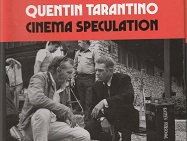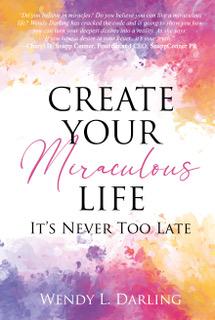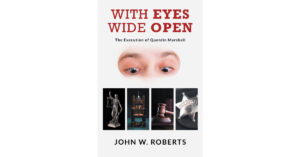Books
Quentin Tarantino’s ‘Cinema Speculation’: Autobiography? Encyclopaedia? Critiques?…Keep Speculating!


Quentin Tarantino’s ‘Cinema Speculation’: Autobiography? Encyclopaedia? Critiques?…Keep Speculating!
Confined by time (1968-1981) and restricted to select genres, like revenge, gory violence, exploitation and blaxploitation, Quentin Tarantino’s 392-page hard-cover Hachette publication is a voyage of discovery that is not for the feeble-hearted or the purist. In baseball and cricketing terminology, he hits the ball all over the park. Though he was born in 1963, the (restricted entry) films of the 60s and early 70s that feature in his ‘anthology’ were seen either much later or were seen in their first run thanks to ushers who looked the other way when he tagged along with his mother, who was a movie buff.
As a director, he has made nine films, the first being Reservoir Dogs (“The title meant nothing. It just sounded nice)”, Pulp Fiction and Once Upon a Time in Hollywood. He has said time and again that he will probably make one last film, his tenth, and then retire from film-making, concentrating on writing books, once he turns 60. This is his 60th year, and though the much-awaited tenth film did not arrive, a book did, in 2022. Herein, you get to know his opinions on a 100, maybe more, Hollywood movies, their directors, their screenplay writers, their actors (including bit players) in a back-and-forth, flashback-flashforward roller-coaster ride that you are not likely to have experienced before.

Besides his mother, her boy-friend and a man called Floyd Ray Wilson, a black man who was dating his mother’s flat-mate and later came and lived with the family for a while, spurred the urge to discover more at the movies. Quentin later ran a VHS rental service, and that gave him an opportunity to see his chosen films time and again. He short-lists the following films for a before, during and after discussion: Bullitt (1968), Dirty Harry (1971), Deliverance (1972), The Getaway (1972), The Outfit (1973), Sisters (1973). At the end of the Sisters chapter, Tarantino writes about Barry Brown, the lead actor of Daisy Miller, who committed suicide at the age of 27: “Who was Barry Brown? What did it all mean? Am I the only one who remembers Barry Brown? Am I enough?”
Soon afterwards, he takes us on a memorable ride with Taxi Driver (1976). Page 211 to 233 will tell you things about the unit of Taxi Driver that you could not have possibly known. Oh, I should have mentioned earlier that Tarantino takes time and space out to dissect reviews and reviewers, and, as expected, does not go with the favourites, often at complete variance with them. Yes, Pauline Kael features, so do Charles Champlin, Kevin Thomas, and more. He also devotes a few pages to Bela Lugosi, the horror icon, and his untimely death.
There is a lot of speculation in the book. What if? What is X had played the lead instead of Y? What if A had directed the film instead of B? It’s a nice game, and you get sucked into it real fast. The only problem is that in this part of the world (India), most of the films mentioned either did not get a release or were released in a heavily censored version. This was particularly true of the period 60s-80s. Another fact was that Hollywood films would be released in India up to three years after their American release. And a lot of his references are to the ‘heavily censored’ scenes, so Indians will find it impossible to relate to them, unless they watch them now, at home, without the spectre of censorship. Secondly, there are so many American references that you may never get the context of most of them. You will get to know what I mean when you reach the chapter ‘What if Brian De Palma Directed Taxi Driver Instead of Martin Scorcese?’

Next in his list of selected favourites are Rolling Thunder (1977), Paradise Alley (1978), Escape from Alcatraz, Hardcore (1979), The Funhouse (1981) ending with a Floyd Footnote, a tribute to the man who inspired Django Unchained, but who could never get a screenplay sold.
It is easy reading, impressively written, with language hovering between the literary and the ‘f’ word (galore). The print-face and paper is easy on the eye. Some parts do seem repetitive, but they are there to give emphasis. Many of the films he talks about were seen as a double feature, a system that might be alien to Indians. You could see two films, successively, for the price of one or choose which one. Of course this was confined to select cinemas and slightly older movies.
You cannot but marvel at the amount of information Quentin Tarantino packs into the book. For a non-American who is interested in Hollywood, this is an encyclopaedia. It is, at the same time, in small measure, his autobiography. After reading Cinema Speculation, you realise why his screenplays and dialogue are so effective. Tarantino has very good command, over the English (American) language and the medium of cinema. Not to mention an elephantine memory. Of course, seeing each film a number of times helps sharpen that gigabyte edge.
If there is one thing you miss in the book, it is more pictures. Guess the copyright laws in the USA must have come in the way of this added attraction.
Don’t speculate! Get a copy.
Press Update For Studio CarryOnHarry
Find Holiday Deals Flights Attractions and Hotels !
Get Interviewed

Save on Travel with Trip.com (ENG)
For Interviews At Studio CarryOnHarry Online Submission Form Click Here
Books
Cary Elwes, Gates McFadden, Walter Koenig, Manny Jacinto Added to FAN EXPO Portland Celebrity Lineup

Elwes gained wide acclaim for his portrayal of “Wesley” in the 1987 classic The Princess Bride and reached new audiences by headlining the Mel Brooks spoof Robin Hood: Men in Tights and later Saw. He also recently appeared in the Tom Cruise features Mission Impossible: Dead Reckoning Part One and Mission Impossible: The Final Reckoning and portrays “Mayor Larry Kline” in Stranger Things 3.
McFadden had the key role of “Beverly Crusher” in TNG, reprising the role in Picard, Prodigy and other iterations of the franchise. She is also a stage actress, choreographer, director, teacher, and was the host of more than 300 episodes of the podcast “Gates McFadden InvestiGates: Who Do You Think You Are?”
Koenig is best known for his recurring television portrayals both of the hated, intensely driven “Alfred Bester” (Babylon 5) and the likable, perpetually cheerful “Pavel Chekov” (Star Trek). Koenig’s film work includes the first seven Star Trek feature films, for which he earned two Saturn Award Best Supporting Actor nominations. His many other films have been independent projects with challenging roles.
Jacinto played “Jason Mendoza” on the full four-season run of The Good Place (2016-20) and later appeared as “Lt. Fritz Avalone” in the blockbuster Top Gun: Maverick. Also among his more than 50 TV and film credits are runs on the Hulu series Nine Perfect Strangers and the animated series Hailey’s on It!
Peggy, earning the title of “Britain’s Ugliest Dog” in a national competition there, has gone on to stardom as “Dogpool” in the Marvel Universe in Deadpool & Wolverine. A portion of proceeds from her appearance at FAN EXPO Portland will support a local charity in the Pacific Northwest.
The five bolster an already impressive FAN EXPO Portland celebrity roster that includes:
• The Lord of the Rings headliners Elijah Wood, Sean Astin, Billy Boyd and Dominic Monaghan
• Mike Colter (Luke Cage, Men in Black³)
• Josh Holloway (Lost, Yellowstone)
• Jonathan Frakes (Star Trek: The Next Generation)
• Harry Potter duo of Matthew Lewis and Bonnie Wright
• Judith Hoag (Teenage Mutant Ninja Turtles, Armageddon)
• Robbie Rist (Teenage Mutant Ninja Turtles, The Brady Bunch)
• Ernie Reyes Jr. (Teenage Mutant Ninja Turtles, Indiana Jones and the Kingdom of the Crystal Skull)
• Brian Tochi (Teenage Mutant Ninja Turtles, Revenge of the Nerds)
• Kenn Scott (Teenage Mutant Ninja Turtles, director/Adventures of Johnny Tao)
• François Chau (Teenage Mutant Ninja Turtles, Lost)
• Thomas Lennon (Reno 911!, American Dad)
• Cedric Yarbrough (Reno 911!, The Goldbergs)
• My Hero Academia standouts Eric Vale, David Matranga, J. Michael Tatum, Brandon McInnis and Clifford Chapin
• Hazbin Hotel regulars Christian Borle, Joel Perez and Krystina Alabado
More FAN EXPO Portland guest announcements will follow from the worlds of film, television, streaming, art, literature, gaming, cosplay, anime, animation and more in the coming weeks.
Adult, Youth and Child Single-Day Tickets, Three-Day Passes, Family passes, and Ultimate and VIP Packages for FAN EXPO Portland are available now at www.fanexpoportland.com. Advance pricing is available until January 1.
Portland is the second event on the 2026 FAN EXPO HQ calendar; the full schedule is available at fanexpohq.com/home/events.
About FAN EXPO HQ
FAN EXPO HQ is the largest comic con producer in the world. Collectively it hosts over one million fans annually at FAN EXPO New Orleans, FAN EXPO Portland, FAN EXPO Vancouver, FAN EXPO Cleveland, MEGACON Orlando, Toronto Comicon, CALGARY EXPO, FAN EXPO Denver, FAN EXPO Philadelphia, FAN EXPO Boston, FAN EXPO Chicago, FAN EXPO Canada, FAN EXPO Dallas, VIDCON Anaheim, EDMONTON EXPO, Dallas FAN FESTIVAL and FAN EXPO San Francisco. The latest schedule of events is available on the website, along with up-to-date ticket information. Discover. Celebrate. Belong.
Press Update For Studio CarryOnHarry
Find Holiday Deals Flights Attractions and Hotels !
Get Interviewed

Save on Travel with Trip.com (ENG)
For Interviews At Studio CarryOnHarry Online Submission Form Click Here
Books
Nashville Lavender Pioneer Gigi de Lugo Secures Majority Ownership of Permanent Farm in Joelton, Tennessee

Lloyd Traven, President of Peace Tree Farm, the original breeder of these global-standard varieties, praises de Lugo’s early foresight and influence:
“Over a period of the last decade, Gigi has been highlighting our introductions that have become the Gold Standard for lavender worldwide, and she was an early proponent because she saw the extra value of these introductions… Once she knew the plants were different and far superior, she committed to making the right choice for her customers. She can now proudly say that she has started over 30 new farms on their journey across an area ranging from Virginia through to Iowa!”
From its original rented fields in Whites Creek—Gigi’s Lavender, was celebrated by “Garden & Gun” magazine as one of the South’s top lavender destinations—the licensed nursery has supplied thousands of Peace Tree-bred plants throughout Tennessee and beyond. In 2019, de Lugo founded “The Lavender Exchange (TLx),” an exclusive membership alliance offering ongoing technical support, resource sharing, cooperative marketing, and agritourism promotion to farms that source their plants exclusively from Gigi’s Nursery.
Traven also highlights the impact of this network: “Gigi also knows the great importance and value of marketing with expression of clear benefits and a clear message. She created the Lavender Exchange with this in mind—to provide an outlet for cooperative marketing and sharing of equipment and machinery and product ideas.”
This strengthened ownership ensures continuity for de Lugo’s research, educational outreach, and product innovation at the Joelton location, including her newest Patent Pending offering, “ZWave Mg”—a topical magnesium spray infused with pure Phenomenal lavender hydrosol steam-distilled exclusively from flowers grown by TLx member farms. Designed for relaxation, muscle relief, and better sleep, ZWave Mg showcases the wellness potential of Southern-grown lavender.
“This milestone gives us the stability and security to continue investing in our Southern lavender research, development, product distribution, and growing community of the farms we support through The Lavender Exchange (TLx),” said Gigi de Lugo. “From the beginning I set out to prove lavender could become a viable cash crop for Tennessee and Southern farms—not only a pretty agritourism field, but a real harvestable commodity built on Phenomenal®. It took courageous pioneers willing to bet on the unproven and stay the course with me. These years, alongside the extraordinary farmers of our TLx family, have been one of the greatest adventures of my life.”
Experience the pure essence of Southern lavender: Gigi’s premium products, including the breakthrough ZWave Mg, are available exclusively through her website, and retail partners across Tennessee. Gigi is in discussion with a Nashville based manufacturer to expand her ZWave Mg production capacity for 2026.
About Gigi’s Lavender Nursery & Farm
Gigi’s Lavender Nursery & Farm is a Tennessee-licensed grower and an exclusive Southeast source for Peace Tree Farm’s Phenomenal®, Sensational!®, Exceptional!®, Inspirational!® lavender cultivars. It serves as headquarters for The Lavender Exchange (TLx), a premier network advancing lavender agriculture and agritourism across the South and Midwest.
Press Update For Studio CarryOnHarry
Find Holiday Deals Flights Attractions and Hotels !
Get Interviewed

Save on Travel with Trip.com (ENG)
For Interviews At Studio CarryOnHarry Online Submission Form Click Here
-

 Editor's Choice3 months ago
Editor's Choice3 months agoRanveer Singh and Deepika Padukone Reunite for New Romantic Comedy
-

 Editor's Choice8 months ago
Editor's Choice8 months agoReview: Rekhachithram (2025) – A Masterful Blend of Mystery and Redemption
-

 Authors and Artists4 years ago
Authors and Artists4 years agoCreate Your Miraculous Life: It’s Never Too Late Wendy L. Darling
-

 People's Choice4 months ago
People's Choice4 months agoBollywood in August 2025: A Landscape of Sequels, Social Commentary, and Star Power






